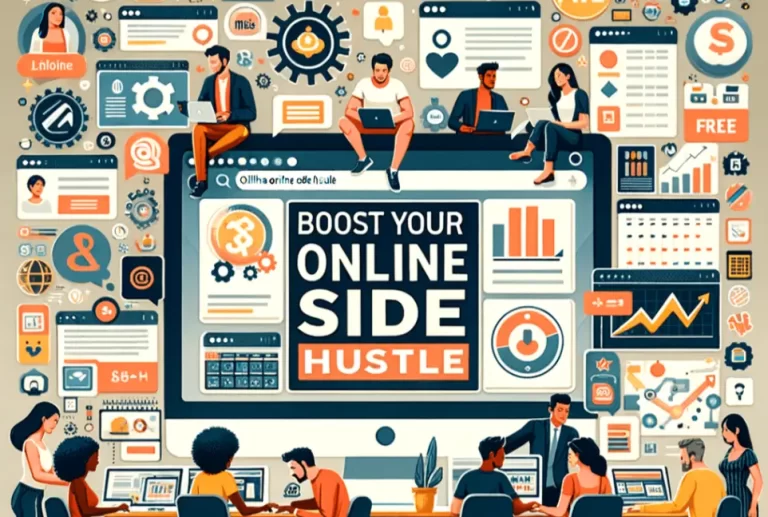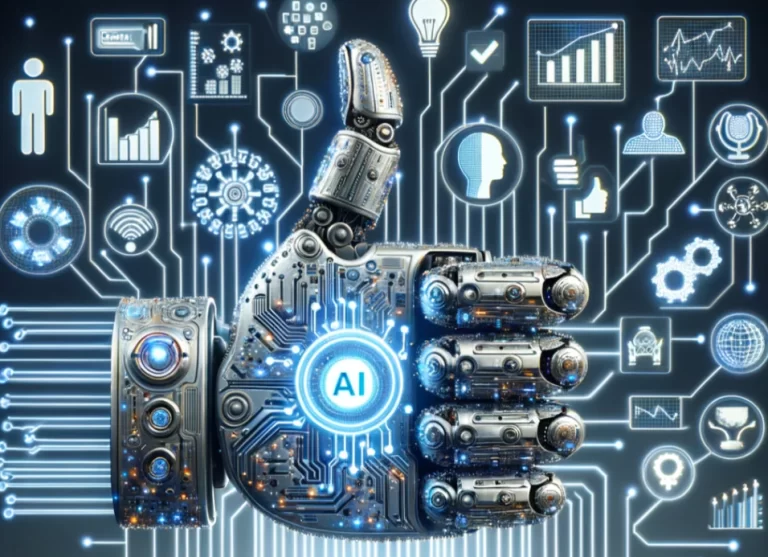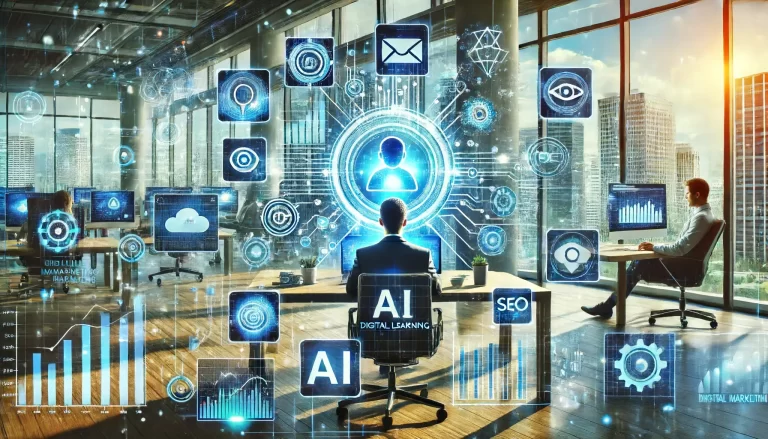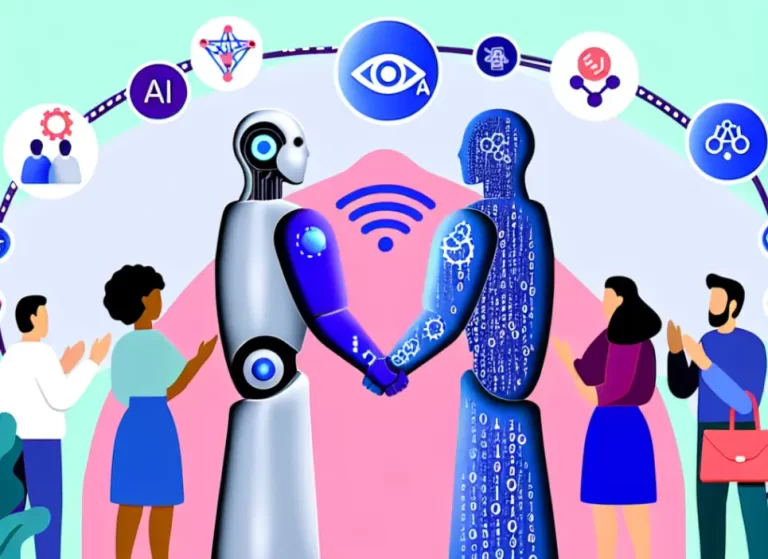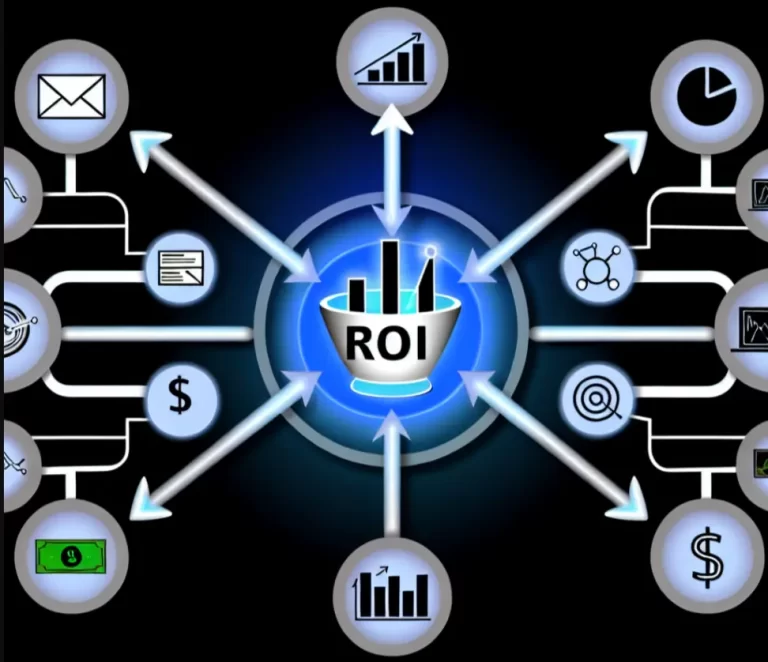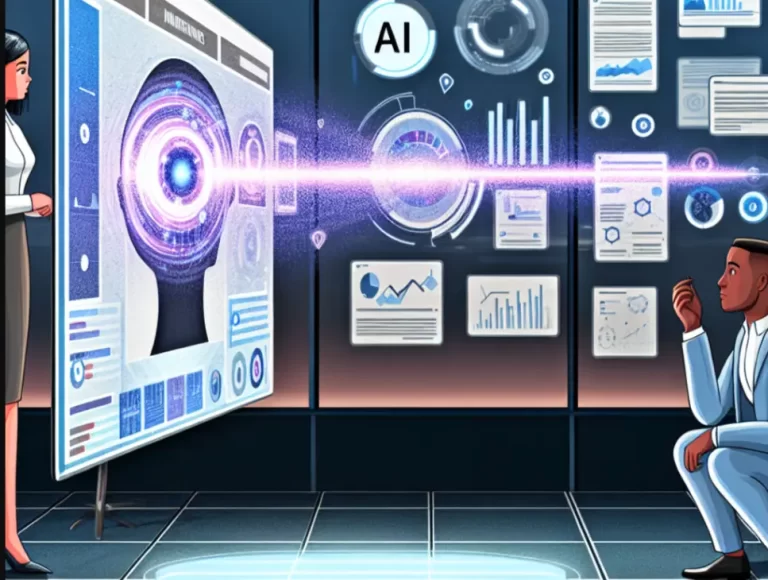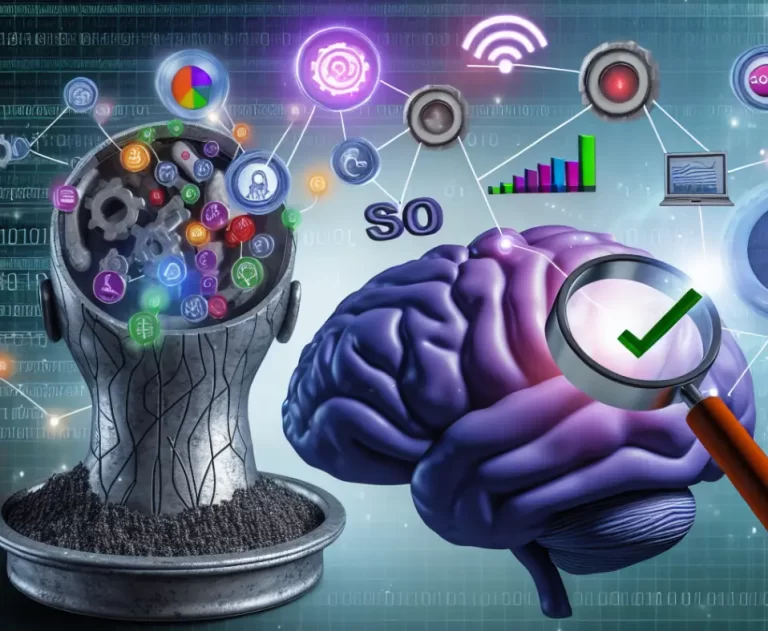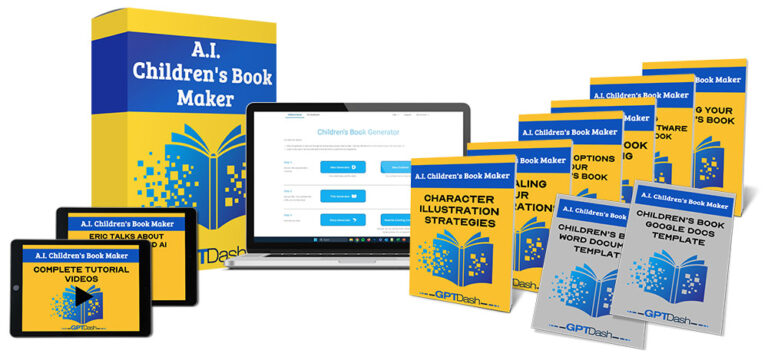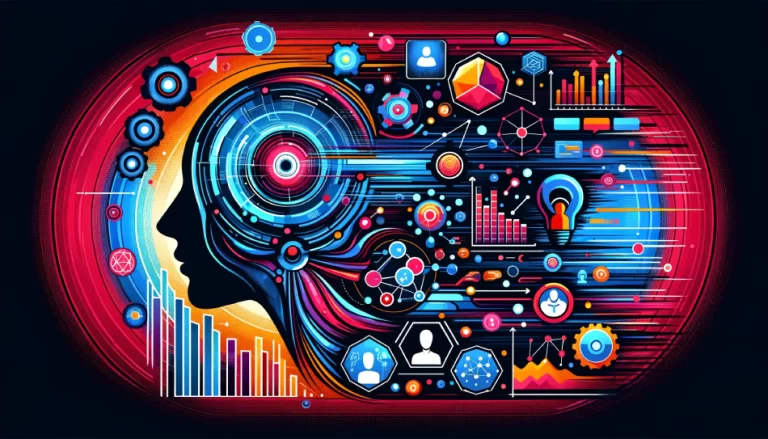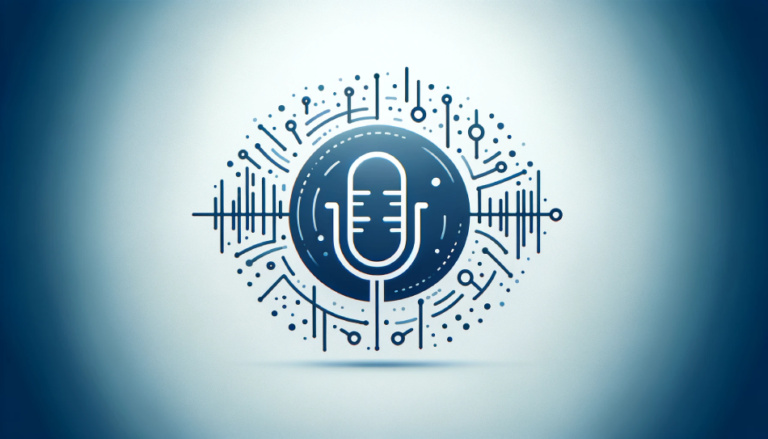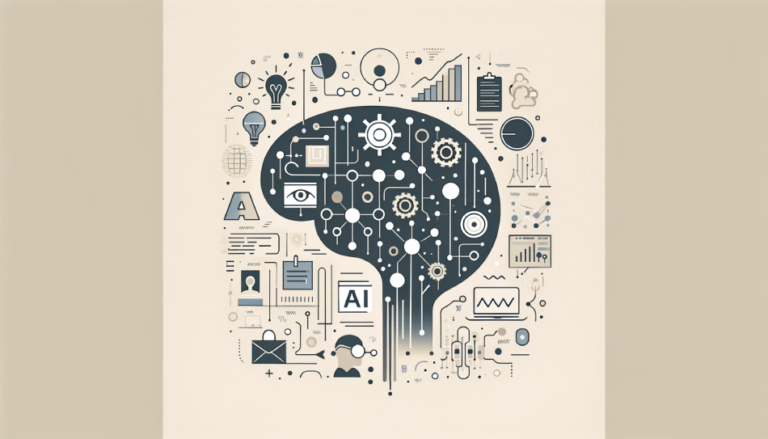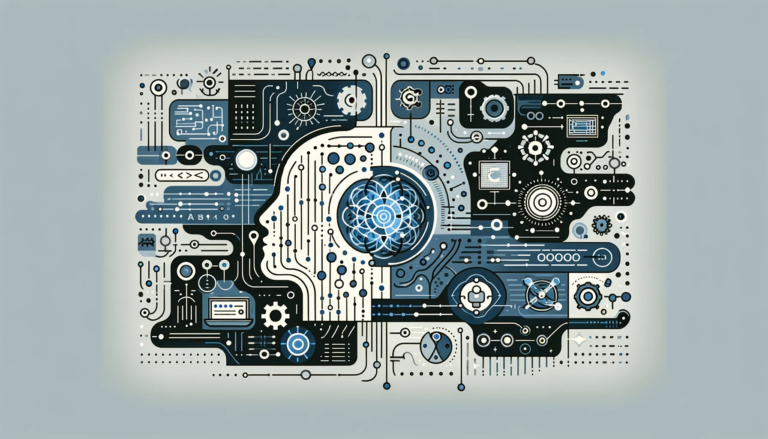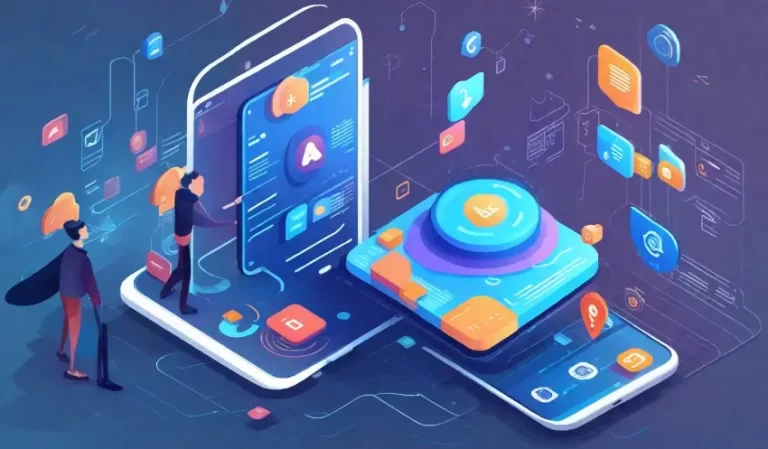Automate Your Marketing Campaigns with AI
If you’re curious about how artificial intelligence (AI) is shaking up the world of marketing, you’re in the right place. Picture this: a bustling marketplace where every brand is vying for attention. It’s a bit chaotic, right? Enter AI – the game-changer that’s helping brands cut through the noise, connect with the right audience, and make smarter decisions. Let’s dive into what AI in marketing is all about, shall we?
First off, AI isn’t just a fancy buzzword. It’s a powerful tool that’s transforming the way marketers interact with customers and execute campaigns. Think of AI as your clever, tireless assistant who can handle all the repetitive tasks, analyze vast amounts of data with lightning speed, and even predict future trends. Sounds like a dream come true, doesn’t it?
What Exactly is AI in Marketing?
In the simplest terms, AI in marketing involves using smart algorithms and machine learning techniques to enhance marketing efforts. Here’s a quick rundown of what AI can do:
- Data Analysis: Crunching through huge datasets to uncover valuable insights.
- Customer Segmentation: Grouping customers based on behaviors, preferences, and demographics.
- Personalization: Tailoring messages and offers to individual customers for that personal touch.
- Predictive Analytics: Forecasting future outcomes based on historical data.
- Chatbots and Virtual Assistants: Providing instant, 24/7 customer service and engagement.
Pretty cool, right? But there’s more to it than just these functionalities. Let’s talk about why AI is becoming indispensable in the marketing world.
Why Marketers Love AI
So, what makes AI such a darling among marketers? Here are a few reasons:
- Efficiency: AI takes over time-consuming tasks, freeing up your team to focus on creative and strategic initiatives. Imagine having more time to brainstorm killer campaign ideas while AI handles the grunt work.
- Accuracy: Humans are great, but we’re prone to errors. AI, on the other hand, can process data with pinpoint accuracy, ensuring your marketing strategies are based on solid facts and figures.
- Scalability: Whether you’re a small business or a large corporation, AI scales seamlessly with your needs. It can handle increasing amounts of data and complexity without breaking a sweat.
- Customer Insights: AI digs deep into customer data to reveal patterns and trends that you might miss. These insights are gold for crafting targeted, impactful campaigns.
It’s no wonder that businesses are investing heavily in AI technologies. But before you rush to integrate AI into your marketing mix, it’s important to understand how it fits into your overall strategy and what specific tools are available. This journey into the AI-powered marketing landscape is just beginning, and there’s so much more to explore.
Stay tuned as we delve deeper into the benefits, technologies, and practical implementations of AI in marketing. Trust me, you won’t want to miss it!

Benefits of Automating Marketing Campaigns
Imagine having a marketing team that works tirelessly around the clock, delivering personalized messages and optimizing ads with pinpoint precision—all without taking a break. Sounds like a dream, right? Well, thanks to AI-driven marketing automation, this dream can be your reality! Let’s dive into the exciting benefits of automating your marketing campaigns:
1. **Efficiency and Productivity**
Automating your marketing campaigns means saying goodbye to repetitive tasks. Whether it’s scheduling social media posts, sending out email newsletters, or segmenting audiences, AI-powered tools handle these chores effortlessly. This frees up your time to focus on creativity and strategy, making your marketing efforts far more effective.
2. **Personalization at Scale**
One of the standout advantages of AI in marketing is its ability to personalize content at scale. By analyzing user behavior and preferences, AI can create highly targeted messages for each individual in your audience. This not only boosts engagement but also fosters a deeper connection with your customers. Who doesn’t love receiving content that feels tailor-made just for them?
3. **Data-Driven Decisions**
AI takes the guesswork out of decision-making. With advanced algorithms and machine learning, AI tools can analyze vast amounts of data to provide actionable insights. This means you can make informed decisions based on real-time data, leading to more effective campaigns and better ROI. No more relying on hunches or outdated information!
4. **Cost-Effectiveness**
While investing in AI technology might seem daunting at first, the long-term savings are significant. Automation reduces the need for manual labor and minimizes errors, which translates to lower operational costs. Plus, with AI optimizing your campaigns continuously, you can expect higher conversion rates and, ultimately, more bang for your buck.
5. **Enhanced Customer Experience**
Providing a seamless and engaging customer experience is crucial in today’s competitive market. AI can help you achieve this by delivering timely and relevant content, responding to customer inquiries swiftly, and predicting customer needs before they even arise. This not only keeps your customers happy but also encourages loyalty and repeat business.
6. **Scalability**
As your business grows, so does the complexity of your marketing efforts. Fortunately, AI-driven automation scales effortlessly with your needs. Whether you’re handling a few hundred customers or several million, AI ensures that your marketing campaigns remain effective and manageable. This flexibility is invaluable for businesses looking to expand without compromising on quality.
7. **Increased Accuracy**
Human errors can be costly in marketing. From mistimed posts to misinterpreted data, mistakes can derail your efforts. AI, on the other hand, offers unparalleled accuracy. Its ability to process and analyze data without fatigue means you can trust the results and plan your strategies with confidence.
Ready to Take the Leap?
Automating your marketing campaigns with AI is like having a supercharged assistant by your side, empowering your business to reach new heights. The blend of efficiency, personalization, data-driven insights, cost-effectiveness, enhanced customer experiences, scalability, and accuracy makes AI an indispensable tool in today’s marketing landscape.
So, what are you waiting for? It’s time to embrace AI and watch your marketing efforts soar!
Key AI Technologies Used in Marketing Automation
So, you’re curious about how AI is shaking up the marketing world, huh? Well, buckle up because we’re diving into some of the coolest AI technologies that are transforming marketing automation from a chore into a breeze. These technologies are not only innovative but also incredibly effective at helping you get the most bang for your marketing buck.
1. Machine Learning
First on the list is Machine Learning (ML), the backbone of many AI applications. ML algorithms analyze massive datasets to find patterns and make predictions. In marketing, this means you can tailor campaigns based on customer behavior, predict future buying trends, and even identify potential churn before it happens.
- Personalization: ML can help you create highly personalized content by analyzing customer data to deliver targeted messages.
- Optimization: It can optimize your marketing strategies in real-time, making adjustments to increase effectiveness.
2. Natural Language Processing (NLP)
Natural Language Processing (NLP) is another game-changer. This technology enables machines to understand and respond to human language, making it perfect for content creation and customer interaction.
- Chatbots: NLP-powered chatbots can handle customer inquiries 24/7, providing instant responses and freeing up your team for more complex tasks.
- Sentiment Analysis: NLP can analyze customer feedback and social media mentions to gauge public sentiment about your brand.
3. Predictive Analytics
Predictive Analytics is all about future-gazing. By analyzing existing data, these tools can forecast future trends, helping you make informed decisions about your marketing strategies.
- Lead Scoring: Predictive analytics can help you prioritize leads that are most likely to convert, ensuring your sales team focuses on the right prospects.
- Customer Lifetime Value (CLV): This technology can predict the long-term value of a customer, helping you allocate your resources more effectively.
4. Image Recognition
Don’t underestimate the power of Image Recognition. This AI technology can analyze visual content to extract valuable insights, making it a must-have for modern marketers.
- Visual Search: Platforms like Pinterest and Google use image recognition to offer visual search capabilities, enhancing the user experience.
- Content Moderation: It can automatically review and filter out inappropriate or irrelevant content, maintaining the quality of your brand’s visual assets.
5. Programmatic Advertising
Programmatic Advertising takes the guesswork out of ad placement. Using AI algorithms, it automates the buying, placement, and optimization of ads in real-time.
- Real-Time Bidding (RTB): This allows you to bid for ad space in milliseconds, ensuring your ads reach the right audience at the right time.
- Ad Personalization: Programmatic advertising can deliver personalized ads to different audience segments, improving engagement and conversion rates.
There you have it—a whirlwind tour of the key AI technologies driving marketing automation. By leveraging these tools, you can not only enhance your marketing efforts but also stay ahead of the competition. So, why not give them a try and see the magic unfold?
How to Implement AI in Your Marketing Strategy
Alright, so you’ve heard all the buzz about AI transforming marketing and you’re ready to jump in. Fantastic! Implementing AI in your marketing strategy might sound like a daunting task, but with the right steps, it can be a smooth and rewarding journey. Let’s break it down.
1. Identify Your Goals
First things first—what do you want to achieve with AI? Are you looking to improve customer segmentation, boost engagement, or streamline your campaign management? Clearly defining your goals will help you choose the right AI tools and set measurable KPIs.
2. Collect Quality Data
AI thrives on data. The more accurate and comprehensive your data, the better AI can analyze and make predictions. This means you need robust data collection methods. Ensure all your customer interactions—emails, website visits, social media interactions—are tracked and stored securely.
3. Choose the Right Tools
There are countless AI tools available, each designed for specific tasks. Whether it’s a CRM with AI capabilities, chatbots for customer service, or predictive analytics platforms, do your homework to find tools that align with your goals.
Here are some popular AI tools:
- Chatbots: Tools like Drift and Intercom for real-time customer interaction.
- Email Marketing: Platforms like Mailchimp that offer AI-driven personalization.
- Analytics: Google Analytics with AI features for better insights.
4. Start Small
Diving headfirst into AI might be tempting, but starting small allows you to test the waters and understand what works best for your business. Pick one area, such as email marketing, and integrate AI tools to see the impact. Gradually expand as you gain confidence and experience.
5. Train Your Team
Your team needs to be comfortable with AI tools for them to be effective. Invest in training sessions so everyone from your marketing manager to your data analysts understands how to leverage AI. Remember, a tool is only as good as the person using it!
6. Monitor and Adjust
AI isn’t a set-it-and-forget-it solution. Continuously monitor your AI-driven campaigns and analyze performance metrics. Are you meeting your KPIs? If not, adjust your strategy. AI is flexible, and so should be your approach.
7. Stay Updated
AI technology is evolving rapidly. To stay ahead of the curve, keep up with industry trends, attend webinars, and participate in forums. Being updated will help you make informed decisions and keep your strategy cutting-edge.
Pro Tip:
Consider collaborating with AI consultants. Their expertise can provide invaluable insights and help tailor AI solutions specifically for your business needs, ensuring you get the most out of your investment.
There you have it! By following these steps, you’ll be well on your way to integrating AI into your marketing strategy seamlessly. Remember, the key is to start with clear goals, gather quality data, and keep learning. Happy marketing!
Real-world Examples of AI-driven Marketing Campaigns
Hey there! Let’s dive into some amazing real-world examples of AI-driven marketing campaigns that have truly made waves in the industry. These are not just theoretical concepts; these are campaigns that have taken brands to new heights. So, grab a comfy seat and let’s explore!
1. Coca-Cola’s AI-driven Social Media Campaigns
Coca-Cola has been a trailblazer when it comes to leveraging AI for marketing. One stellar example is their use of AI to analyze and identify social media trends. By employing sophisticated algorithms, they’re able to monitor user-generated content and detect emerging trends almost in real time. This allows them to create highly relevant and timely content that resonates with their audience. How cool is that?
2. Sephora’s Virtual Artist
Sephora, the beauty giant, implemented an AI tool called Virtual Artist that has revolutionized the way customers shop for makeup. This tool uses artificial intelligence to allow users to virtually try on various makeup products through their smartphones. It analyzes facial features and provides personalized makeup recommendations. This not only enhances the shopping experience but also drives up customer engagement and sales. A win-win!
3. Netflix’s Personalized Recommendations
Who doesn’t love a good binge-watch session? Netflix has mastered the art of keeping us glued to our screens, thanks to its AI-driven recommendation engine. By analyzing your viewing history, Netflix’s algorithms predict what you’re likely to watch next and serve up suggestions tailored just for you. This level of personalization keeps viewers coming back for more. Intrigued yet?
4. Amazon’s Product Recommendations
Amazon is another powerhouse when it comes to AI in marketing. Their recommendation engine is a critical part of their success. By leveraging machine learning, Amazon can recommend products based on your browsing history, past purchases, and even items you’ve left in your cart. This not only enhances the user experience but substantially boosts sales. Talk about smart shopping, right?
5. Starbucks’ Predictive Analytics
Starbucks is brewing more than just coffee; they’re brewing some serious AI magic too. They use predictive analytics to personalize their marketing efforts. By analyzing data from their loyalty program, weather patterns, and even local events, Starbucks can send personalized offers to customers. For example, on a hot day, you might get a special offer for a refreshing iced latte. Now, that’s what we call a personalized pick-me-up!
6. Spotify’s Discover Weekly Playlist
If you’re a music lover, Spotify’s Discover Weekly playlist is an absolute gem, and it’s all thanks to AI. By analyzing your listening habits, Spotify curates a weekly playlist filled with songs you’re likely to love but may not have discovered on your own. This keeps users engaged and coming back week after week. It’s like having a personal DJ who knows your tastes perfectly. How awesome is that?
Takeaway
These examples showcase the transformative power of AI in marketing. By leveraging artificial intelligence, these companies have not only enhanced customer experiences but have also driven significant business results. The key takeaway here? AI isn’t just a buzzword; it’s a game-changer in the world of marketing. Whether you’re a small business or a global giant, the potential of AI-driven marketing campaigns is something you can’t afford to ignore.
So, what do you think? Ready to let AI take your marketing campaigns to the next level?
Tips for Maximizing ROI with AI Marketing Tools
Hey there, savvy marketer! So, you’ve decided to dive into the world of AI marketing tools—great choice! But let’s be real: simply having these powerful tools at your disposal isn’t enough. You need to know how to wield them effectively to see a real boost in your ROI. Buckle up, because we’re going to walk through some pro tips that will help you get the most bang for your buck.
1. Know Your Goals
First things first, you need to have a crystal-clear understanding of what you want to achieve. Are you aiming to increase brand awareness, drive more leads, or improve customer retention? Knowing your goals will help you tailor your AI tools to meet specific objectives. Trust me, a vague “I want to do better” isn’t going to cut it.
2. Integration is Key
AI tools are fantastic, but they work best when they’re part of an integrated system. Make sure your AI marketing tools can seamlessly connect with your existing CRM, email marketing software, and social media platforms. This holistic approach will give you a comprehensive view of your customer journey and allow you to optimize every touchpoint.
3. Personalize, Personalize, Personalize
One of the biggest advantages of AI in marketing is its ability to personalize messages at scale. Leverage AI algorithms to analyze customer data and craft highly personalized marketing campaigns. Whether it’s through targeted email content or dynamic website experiences, personalization can drastically improve your engagement rates.
4. A/B Testing is Your Friend
Never underestimate the power of A/B testing. Use AI tools to test different versions of your campaigns to see what resonates best with your audience. The data you’ll get from these tests can provide invaluable insights that can help you fine-tune your strategies for optimal results.
5. Keep an Eye on Analytics
Data is the backbone of any successful AI-driven marketing campaign. Always keep an eye on your analytics to monitor the performance of your campaigns. AI tools often come equipped with advanced analytics capabilities, offering deep insights into customer behavior, conversion rates, and more. Use this data to make informed decisions and adjust your strategies as needed.
6. Don’t Ignore Customer Feedback
AI tools can do a lot, but they can’t replace genuine human interaction. Always be open to customer feedback and use it to improve your campaigns. AI can help you analyze this feedback quickly and efficiently, but the insights you gain from real human opinions are irreplaceable.
7. Stay Updated
The world of AI is constantly evolving, with new tools and features being released all the time. Make it a point to stay updated on the latest trends and advancements in AI technology. This will allow you to continuously refine your strategies and stay ahead of the competition.
8. Invest in Training
AI tools are only as good as the people using them. Invest in training for your team to ensure they can fully harness the power of AI. Whether it’s through online courses, workshops, or even bringing in experts, a well-trained team can make a world of difference.
There you have it! By following these tips, you’ll be well on your way to maximizing your ROI with AI marketing tools. Happy marketing!
VII. Challenges and Considerations in AI Marketing Automation
Hey there! So, you’re diving into the fascinating world of AI marketing automation, huh? Exciting times! But, before you get too deep, let’s chat about some of the challenges and considerations you might face. Knowing these upfront can save you a lot of headaches down the road. 😊
Data Quality and Quantity
First things first, AI thrives on data. But not just any data—**high-quality, relevant data**. If your data is messy, incomplete, or just plain inaccurate, your AI tools won’t be able to perform their magic effectively. So, make sure you’ve got your data house in order. This means:
- Regularly cleaning and validating your data
- Ensuring data is collected from reliable sources
- Maintaining up-to-date and accurate customer profiles
Integration with Existing Systems
Another hiccup you might encounter is integrating AI solutions with your existing marketing stack. You want all your tools to play nice together, right? Sometimes, this is easier said than done. **Compatibility issues** can arise, especially if you’re using legacy systems. Here are a few tips to smooth the process:
- Opt for AI solutions known for easy integration
- Work with vendors who offer strong customer support
- Consider custom APIs if necessary
Cost and Budget
AI solutions can be a bit pricey, especially advanced ones. You need to weigh the **costs against the potential benefits**. But don’t just focus on the sticker price. Here are some hidden costs to keep an eye on:
- Training your team to use new AI tools
- Ongoing maintenance and updates
- Potential need for additional hardware or software
Remember, it’s an investment, and if done right, it will pay off!
Ethical Considerations
AI isn’t just about numbers and algorithms—it also raises some important ethical questions. How you collect and use data can impact your brand’s reputation. Address issues like:
- Customer data privacy
- Transparency in AI-driven decisions
- Avoiding biased algorithms
Being upfront with your customers about how you use their data can go a long way in building trust.
Keeping Up with AI Advancements
AI technology is evolving at a breakneck pace. What’s cutting-edge today might be old news tomorrow. Keeping up with these advancements can be a full-time job. Here’s how to stay in the loop:
- Subscribe to industry newsletters and podcasts
- Attend webinars and conferences
- Join professional networks and forums
Human Oversight
Last but definitely not least, remember that AI should complement human efforts, not replace them. **Human oversight** is crucial to ensure that the AI is working as intended and that it aligns with your broader marketing goals. Regularly review AI-generated insights and decisions to make sure they’re hitting the mark.
Alright, there you have it! Implementing AI in your marketing automation comes with its fair share of challenges, but being aware of them and planning accordingly can set you up for success. Ready to tackle AI automation with confidence? You’ve got this! 🚀

